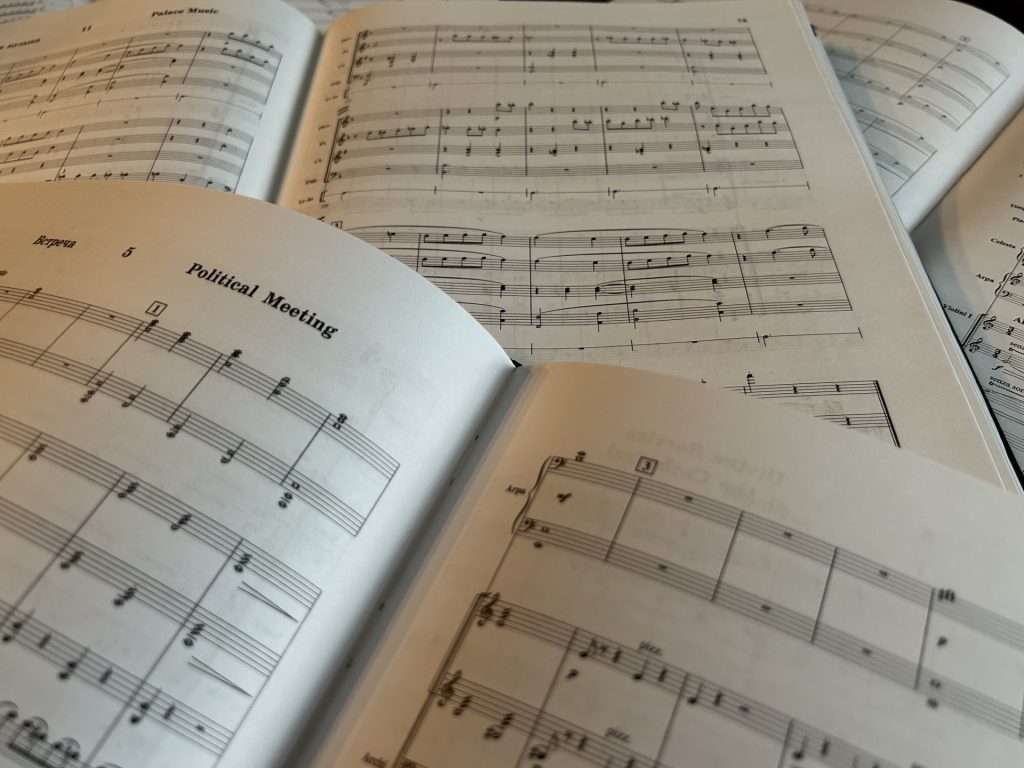
Joan Titus (Professor of Musicology, cross-appointed in Women’s, Gender, and Sexuality Studies) has been named a Fellow of the National Humanities Center for academic year 2023-2024 for work on her third book project Dmitry Shostakovich and Music for Thaw-Era Cinema.
Titus is one of 34 scholars chosen from 541 applications this year, and the recipients are from universities and colleges in states as well as Canada, Nigeria, Singapore, South Africa, Taiwan, and the United Kingdom. Their work represents humanistic scholarship in African American studies; anthropology; archaeology; Asian American studies; East Asian studies; ethnomusicology; gender and sexuality studies; history; history of art and architecture; information studies; languages and literature; media studies; medieval studies; music history and musicology; philosophy; psychology; religious studies; and Slavic studies.
Titus says she is honored to have received the fellowship, which will allow her to work full-time on her writing project at the National Humanities Center in Research Triangle Park. In addition to the fellowship, Titus has received a UNCG Faculty Grant, an award from the Dean’s Research Initiative Fund, and a Kohler Award in 2023.
Dmitry Shostakovich and Music for Thaw-Era Cinema will be the final book in a trilogy that details a history of Soviet film scoring and its cultural politics through the lens of Shostakovich’s film music career, which Titus believes is integral to creation of global film music histories—a topic that has been at the forefront of Titus’ studies.
“I’m fascinated by the ways in which cinema and music mediate our realities and our fictions,” says Titus. “Since I’ve been interested in Russian music, cultural politics, and the visual arts for over 20 years, it is a natural fit for me to study and write histories of East European film music and other audiovisual media to understand how artists assert their identities within certain socio-cultural constructs, particularly regarding nation, gender, and race. Shostakovich is just one case study that will inevitably become part of a larger history of East European music and cinema that has yet to be substantively written.”
Titus’s research has taken her through Berlin, Potsdam, Paris, and New York City where she spent the summer poring over scores and scripts.
“Stalin’s death in 1953 initiated a new era often titled “The Thaw,” named after the novel by Ilya Ehrenburg. This Thaw allowed reopened connections to the West, including film studio collaborations between DEFA (the state film institution of East Germany) and studios in Soviet Russia. As a result, many of the materials from those collaborations, including scripts and sometimes musical notation, are housed in state and library archives across Germany.
“In Paris, I had the pleasure of working at the Centre Chostakovitch, where I studied facsimile reproductions of Shostakovich’s film scores from this period. Examining his handwritten scores, some of which remain unpublished, allows me to fully understand his process, and glean information about his working relationship with directors and others members of a given film team.”
“At the New York Public Library, I will examine archival holdings on Shostakovich’s musical collaborators, including the activist and singer Paul Robeson. NYPL also has significant holdings of Soviet-era press that will assist me in creating a history that includes press reception alongside critical reception from film directors and composers.”
Dmitry Shostakovich and Music for Thaw-Era Cinema provides a case study of how the celebrated composer Dmitry Shostakovich navigated the cultural politics of the Soviet film industry, particularly during the post-Stalinist Thaw-Era.
“In this particular book I examine his last film scores, from 1953 to 1971, which includes discussion of his celebrated scores to Hamlet (1964) and King Lear (1971). It is my hope that the methodologies and histories that I provide in these three books contribute to a foundation for future work in Soviet film music studies and more broadly in the creation of global music histories.”
The first book in the trilogy by Joan Titus is titled The Early Film Music of Dmitry Shostakovich and was published by Oxford University Press in 2016. The second one, titled Dmitry Shostakovich and Music for Stalinist Cinema will be published by Oxford University Press in 2024.